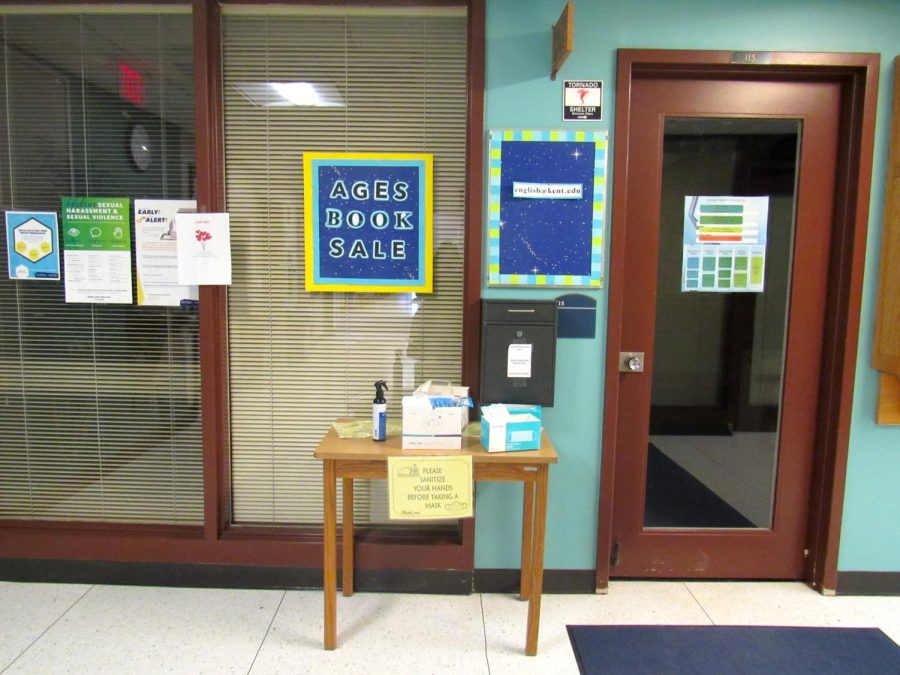Free masks available to those in Kent
The table of free masks located on the first floor of Satterfield Hall, the English building.
February 21, 2022
Residents of Kent are able to protect themselves and slow the spread of COVID-19 with free masks around the city.
Government initiatives have given residents access to free N95 and KN95 masks in pharmacies since the beginning of this month.
President Joe Biden’s mask initiative allows pharmacies, in stores such as Meijer, CVS and Walgreens, to give three free N95 masks to each customer. All patrons have to do to receive the free masks is walk in and ask.
For students looking for masks, there are on-campus options as well. Multiple lecture halls, such as Satterfield and Henderson, along with campus buildings, such as the library and student center, have mask stations with free surgical masks available. A comprehensive list of mask stations can be found on the university’s COVID website.
Currently, the Centers for Disease Control and Prevention names KN95 and N95 masks as the most effective at protecting against COVID-19. However, the CDC’s website also states that surgical masks can still lower the chance of testing positive by 66 percent.
In Kent, City Health Commissioner Joan Seidel wants citizens to know that vaccines and masks are both essential to slowing the spread of COVID-19.
“I think the majority of it is people understanding how beneficial wearing masks is,” Seidel said. “It’s one step in a multi-layered approach.”
While vaccines are effective at protecting from the virus, the CDC urges vaccinated members of the community to continue wearing their masks as well.
“If you are up to date with your COVID-19 vaccines, to maximize protection and prevent possibly spreading COVID-19 to others, wear a mask indoors in public if you are in an area of substantial or high transmission,” the CDC website stated.
More information on mask requirements can be found on the CDC website.
Madeleine Majikas is a Reporter. Contact her at [email protected].

























